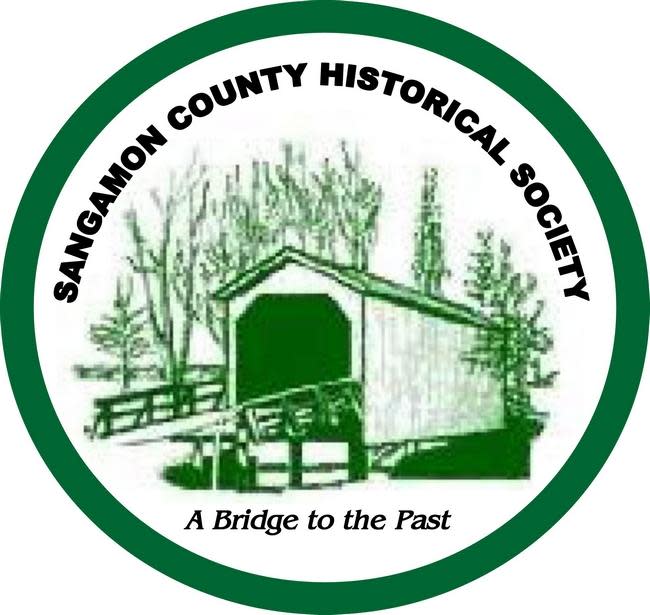These three brothers from Sangamon County, in a sense, created the Wild West

- Oops!Something went wrong.Please try again later.
Joseph, William and James McCoy, in a sense, created the Wild West.
The McCoys, three brothers from Cartwright Township, organized the original cattle drives and turned Abilene, Kansas, into the West’s first great cow town. A giant segment of American culture – the mystique of the cowboy, gunfights, Western movies and “Home on the Range” – might have been much different if it wasn’t for these three sons of Sangamon County pioneers.
The youngest, Joseph Geitling McCoy, is the best known – he usually is given total credit for coming up with the idea of driving longhorn cattle from Texas to the railhead at Abilene. That’s probably because Joseph wrote colorfully about his days in Abilene in an 1874 book, “Historic Sketches of the Cattle Trade of the West and Southwest.” But he didn’t work alone.
As a young man, Joseph joined his older siblings William and James in a Springfield-based livestock trading business, William K. McCoy and Brothers. Findagrave.com’s article on William McCoy (which is based largely on Joseph McCoy’s memoir) gives a brief, clear description of the brothers and their cattle-drive brainstorm.
Earlier column: SangamonLink: 'Springfield's original optimist' died in explosion at cigar store in 1929
“The McCoys were known for the entrepreneurial spirit. It was said they ‘were of that sanguine, impetuous, speculative temperament; just such dispositions as always look most upon the bright side of the picture and never feel inclined to look at the dangers or hazards of a venture, but take it for granted that all will end well that looks well in the beginning.’”
Prices for western cattle plummeted after the Civil War, so the McCoy brothers came up with a plan to profit by shipping cheap Texas cattle to the East, where they were more valuable. Joseph McCoy, assigned to find a shipping point, settled on Abilene. He had lumber hauled in and a pen built to hold 1,000 head of cattle. He also constructed a hotel and a bank, office and livery stable.
“The first shipment to Chicago left Abilene in September 1867,” Findagrave says. “By the end of the year 35,000 head had been driven over the Chisholm Trail to Abilene, and in 1868 the number rose to 75,000 head; by 1870 the number doubled.
“After several years of tremendous profits, the bubble burst for a variety of reasons. By 1871 the firm of William McCoy and Brothers left Abilene.”
More: SangamonLink: A pioneer aviator had no Springfield ties in life but rests at Oak Ridge
The best parts of “Historic Sketches” are Joseph McCoy’s descriptions of cowboys and cattle towns in the late 1860s and early ‘70s, the period when the Old West was new. Here is part of McCoy’s description of the “cow-boy.”:
"The life of the cow boy is one of considerable daily danger and excitement. It is hard and full of exposure, but is wild and free, and the young man who has long been a cow boy has but little taste for any other occupation.
He enjoys a coarse practical joke or a smutty story; loves danger but abhors labor of the common kind; never tires riding, never wants to walk, no matter how short the distance he desires to go. He would rather fight with pistols than pray; loves tobacco, liquor and women better than any other trinity. … His clothes are coarse and substantial, few in number and often of the gaudy pattern. The “sombrero” hat and large spurs are inevitable accompaniments. … The most rude and primitive modes of life seem to be satisfactory to the cow boy.”
After the cattle business, Joseph McCoy promoted refrigerated rail cars and worked at jobs including U.S. Census agent and revenue agent for the Cherokee Nation. He eventually settled in Wichita, where he is buried.
Excerpted from SangamonLink.org, online encyclopedia of the Sangamon County Historical Society.
This article originally appeared on State Journal-Register: Three brothers from Sangamon County, in a sense, created the Wild West

